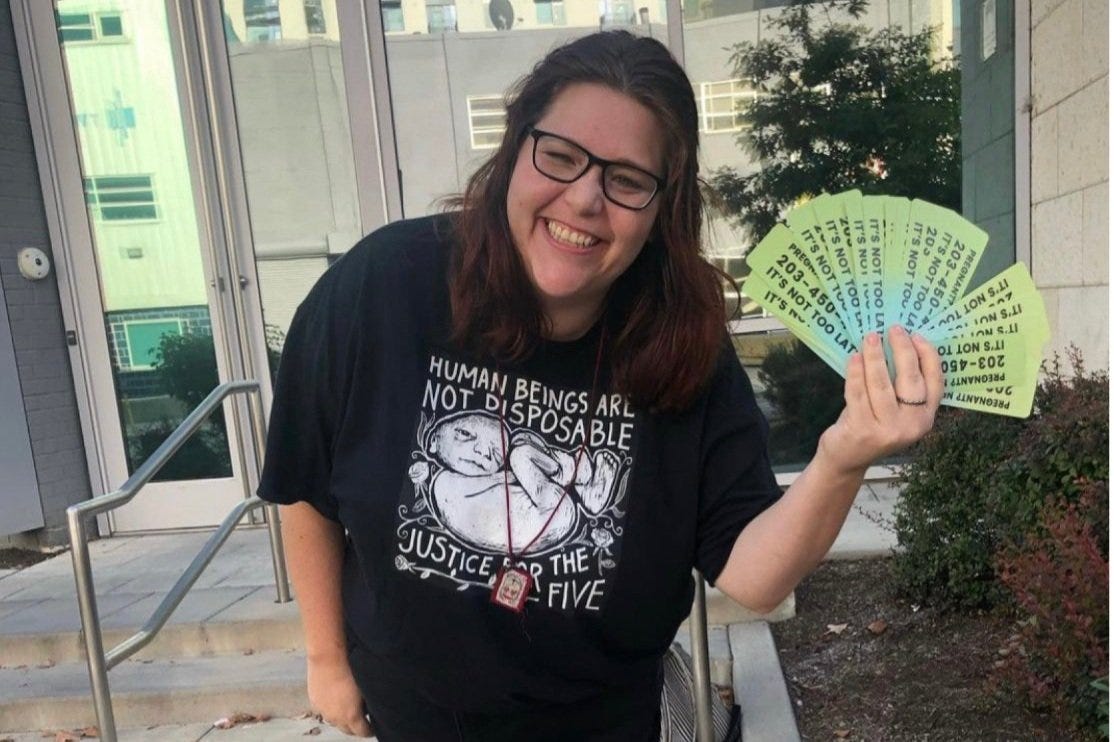Lauren Handy: ‘Is the sacrifice worth it?’
After a presidential pardon, pro-life activist Lauren Handy reflects on prison, and the future
Catholic pro-life advocate Lauren Handy was pardoned last month for federal crimes stemming from a 2020 protest in which she and others entered a Washington, D.C., abortion clinic, with some locking themselves inside, and urging women inside not to undergo abortions.
Handy, 31, was incarcerated at the federal FCI Tallahassee, un…

